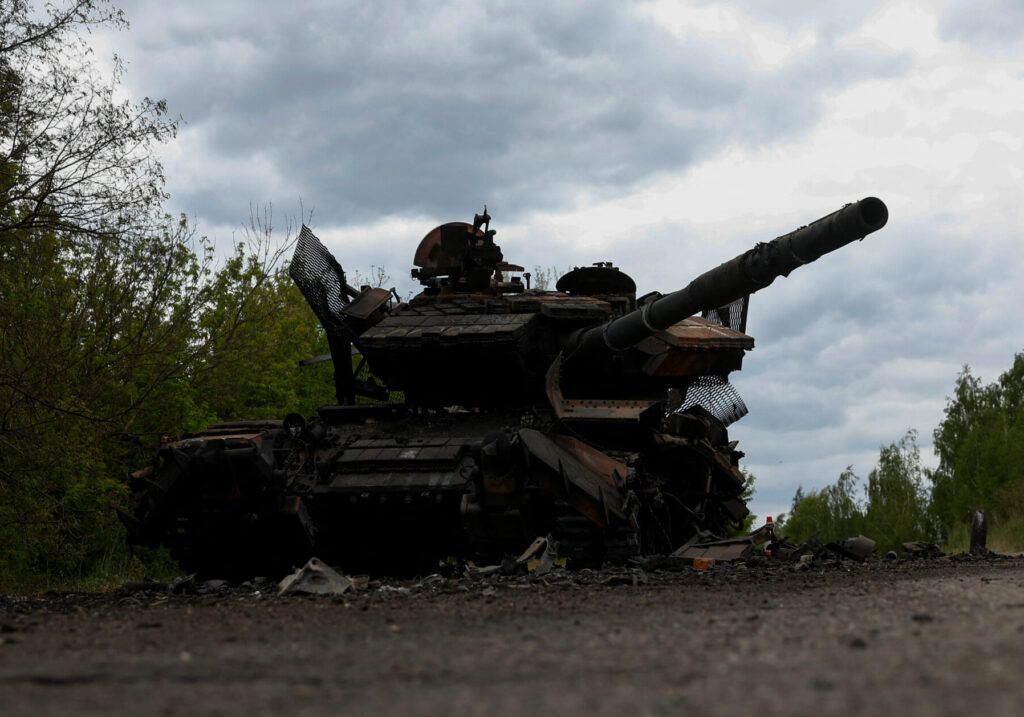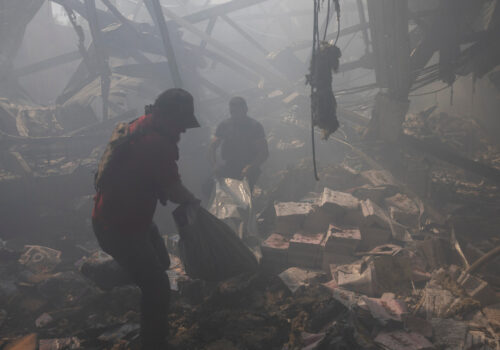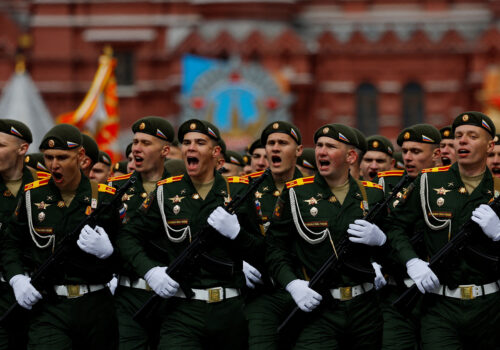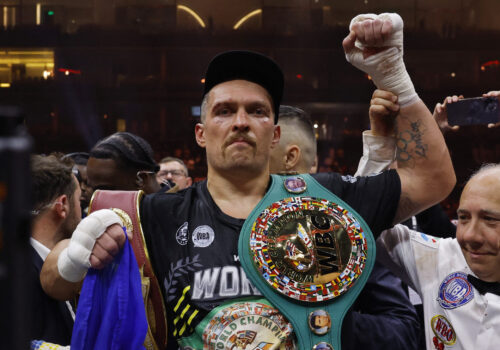In the coming weeks, the Ukraine Recovery Conference in Berlin, the G7 Summit in Italy, the Global Peace Summit in Switzerland, and the jubilee NATO Summit in Washington DC will all offer opportunities for the international community to reinforce its support for Ukraine. These high-profile events should also serve as a chance to take stock. With no end in sight to Russia’s genocidal invasion, Kyiv’s Western partners must define the endgame of their support for Ukraine. Is it Ukrainian victory or merely Ukrainian survival?
Why does the West not have a coherent victory plan? How long can Ukraine be expected to sustain the current war effort if the country only receives sufficient military aid to survive? Is the latest US aid package enough to secure Ukrainian victory? Is Europe doing enough to enforce sanctions, confiscate Russian assets, and supply advanced weapons systems like Taurus missiles? These are just some of the key questions Ukraine’s partners should be asking themselves in the coming weeks.
The stakes could hardly be higher. Putin’s Russia poses a direct threat to the global security system and to a sustainable peace in Europe. The outcome of Russia’s war against Ukraine will define the future security framework on the European continent for decades to come. If the West provides Ukraine with the support it needs to win the war, this victory will secure peace not only for Ukraine but for the whole of Europe. Russian defeat could also spark a political transformation inside Russia and help undermine the country’s aggressive imperial ambitions.
The consequences of Russian success in Ukraine would be equally far-reaching. If the West continues to demonstrate weakness in Ukraine and supports calls for some kind of ceasefire or negotiated settlement, Russia will claim an historic victory and will become even more internationally aggressive. This aggression will not be limited to Ukraine, and will be targeted against the whole Western world.
Nor will the Kremlin be acting alone. On the contrary, Russian victory over the West in Ukraine would embolden the Alliance of Autocracies that has emerged in recent years, bringing together Russia, China, Iran, and North Korea. While further Russian aggression is likely to focus on Europe, Putin’s fellow autocrats will be encouraged to embrace their own expansionist agendas elsewhere.
This is why the international community needs to accept that only Ukrainian victory can open the door to a sustainable peace, both for Ukraine and the wider world. Any attempt to reach a compromise peace agreement with Putin would not only hand Russia victory and allow Moscow to continue occupying entire regions of Ukraine; it would also be a dangerous repetition of the 1938 Munich Conference, which had such tragic consequences for the entire international community. The British and French leaders who agreed to hand Hitler part of Czechoslovakia in Munich also hoped they were securing peace. Instead, they were setting the stage for World War II. Europe cannot afford to make the same mistake again.
Stay updated
As the world watches the Russian invasion of Ukraine unfold, UkraineAlert delivers the best Atlantic Council expert insight and analysis on Ukraine twice a week directly to your inbox.
At present, the West appears to be split into two main camps over the issue of how to end the Russian invasion of Ukraine. One camp recognizes the importance of Ukrainian victory for European security, and sees Russian defeat as its clear goal. These countries are committed to supporting the Ukrainian war effort and refuse to rule out sending troops to defend Ukraine if necessary.
The other camp favors a negotiated settlement and typically frames this readiness to compromise with the Kremlin as a desire for peace. Such posturing is intellectually dishonest. After all, nobody wants peace more than the Ukrainians themselves. However, Ukrainians understand that peace cannot be secured by offering territorial concessions to the Putin regime that would abandon millions of Ukrainians to the horrors of permanent Russian occupation. They know that accepting a ceasefire without victory would make it impossible to hold Russia accountable for war crimes.
Crucially, Ukrainians also recognize that unless Putin is defeated, he will inevitably go further. Encouraged by the impunity of a ceasefire agreement, Russia would use any pause in hostilities to rearm and prepare for the next phase of its war against Ukraine and the West. This would create dangers similar to the threat faced by the Allies during World War II, when Churchill and Roosevelt warned against a premature peace and instead declared the goal of Nazi Germany’s unconditional surrender. Today’s Western leaders must now recognize that offering Putin a ceasefire will not bring about a lasting peace. Instead, it will pave the way for more war.
Future Western support for Ukraine must be built around a clear and unambiguous commitment to Ukrainian victory. This is currently missing. When Western leaders and policymakers gather in the coming weeks, the need to work toward a Ukrainian victory should be at the very top of the agenda. Meanwhile, Ukrainians must continue to explain the difference between a temporary ceasefire and a lasting peace. In 2023, Ukrainian civil society experts did their part by developing their own vision, which was outlined in the Sustainable Peace Manifesto, describing the importance of bringing Russia to justice and providing Ukraine with unambiguous security guarantees.
Eurasia Center events

After more than ten years of Russian military aggression against Ukraine, it is time for Kyiv’s partners to learn the lessons of this war and avoid falling into further Russian traps. When Russia first invaded Ukraine in 2014, it did so under a veil of deniability using so-called “little green men,” or Russian soldiers without insignia. A decade later, Russia is now openly waging the largest European invasion since World War II, and is supported by an alliance of fellow tyrannies who share the Kremlin’s goal of destroying the rules-based international order. Russia is now attacking Ukraine with Iranian drones and North Korean missiles, while receiving military supplies and vital economic support from China. If the West is unable to counter this growing threat, it will forfeit its position at the heart of the international security architecture and be replaced by the rising authoritarian powers.
In 2014, Western leaders were naive enough to expect a diplomatic solution to Russia’s invasion of Ukraine. It should now be painfully obvious that such hopes were unrealistic. Between 2014 and 2022, Ukraine engaged in more than 200 rounds of negotiations with Russia, but this failed to prevent the full-scale invasion of February 2022.
Even while talks continued, Russia made its genocidal intentions clear with relentless propaganda denying the existence of the Ukrainian nation and dehumanizing Ukrainians. This genocidal rhetoric has since been implemented in practice by Putin’s invading army, with well-documented massacres in places like Bucha and Izium, mass abductions and forced deportations, and the eradication of all symbols of Ukrainian national identity in areas under Russian occupation. While the international community sees what is happening in Ukraine, most remain reluctant to accuse Russia of genocide as this would oblige them to act. But turning a blind eye cannot change the fact that we are witnessing a genocide in the center of twenty-first century Europe.
Everybody understands what is needed for Ukraine victory. They know how much Western military assistance is required, and exactly which weapons should be delivered. Everybody knows what sanctions, tribunals, and security agreements are necessary in order to establish a sustainable peace. At the same time, the leaders of the democratic world have yet to address why they have so far shied away from policies that could facilitate Ukrainian victory. The answer is very simple: Western leaders are still heavily influenced by the twin fears of a possible Russian escalation and a potential Russian collapse. In other words, they are unable to commit fully to Ukrainian victory because they are afraid of Russian defeat. This is now the greatest single obstacle to a sustainable peace in Europe.
Perhaps the best advice for Ukraine’s Western partners comes from Pope John Paul II, who said “be not afraid” as he led the fight for freedom and democracy in Central Europe during the 1980s. Europe must now overcome its fears once again if it is to safeguard the freedoms that define the continent. Sustainable peace cannot be achieved at the expense of justice. European security will remain elusive if Putin is allowed to gain from his aggression and consolidate his genocidal occupation of Ukrainian lands.
With the Russian invasion now in its third year, Ukraine’s partners must finally acknowledge that European security depends on Ukrainian victory. The sooner they develop and implement a strategy to achieve this victory, the more lives will be saved. Since 2022, Western policies of escalation management have failed to appease Putin and have only emboldened the Kremlin. If the West wants peace, it must help Ukraine win.
Hanna Hopko is co-founder of the International Center for Ukrainian Victory and head of the ANTS Network. Andrius Kubilius is a member of the European Parliament, former Prime Minister of Lithuania, and chair of the United for Ukraine global parliamentary network.
Further reading
The views expressed in UkraineAlert are solely those of the authors and do not necessarily reflect the views of the Atlantic Council, its staff, or its supporters.

The Eurasia Center’s mission is to enhance transatlantic cooperation in promoting stability, democratic values and prosperity in Eurasia, from Eastern Europe and Turkey in the West to the Caucasus, Russia and Central Asia in the East.
Follow us on social media
and support our work
Image: A destroyed tank is seen on a road, amid Russia's attack on Ukraine, in Kharkiv Region, Ukraine May 16, 2024. REUTERS/Valentyn Ogirenko




